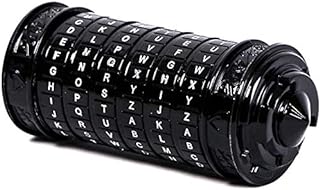Strategic Secrets: Winning Tactics for Puzzle Box Strategy Games
Puzzle box strategy games blend logical puzzles with competitive decision‑making. Whether you’re battling friends in Exit: The Game or tackling the solo challenge of Unlock!, success hinges on a mix of pattern recognition, resource control, and timing. This guide distills the most effective, research‑backed tactics so you can consistently out‑think the competition.
1. Master the Core Mechanics First
Every puzzle box game follows a limited set of mechanics—hidden compartments, code wheels, modular decks, or “talk‑to‑the‑box” triggers. Learn these mechanics inside‑out before you try advanced strategies.
Action Steps
- Read the rulebook twice; highlight any unique symbols or recurring actions.
- Play a “dry run” without any time pressure to map each mechanic to a physical component.
- Create a cheat sheet of symbols, color codes, and common solutions for reference during the game.
2. Prioritize Information Gathering
In most puzzle boxes, the first 10‑15 minutes are spent unlocking clues. Treat this phase like a reconnaissance mission.
Key Tactics
- Scan before you act: Flip through all cards, tiles, or compartments once to note patterns.
- Mark unknowns: Use a pencil or sticky note to annotate pieces you haven’t solved yet.
- Share findings early (team games): Communicate observations immediately—duplication of effort wastes precious minutes.
3. Optimize Resource Management
Most games give you limited “tools”: hint tokens, extra dice rolls, or special actions. Spending them wisely separates winners from guessers.
Resource‑Spend Framework
- Assess impact: Will the resource solve a single puzzle or unlock multiple subsequent steps?
- Set a threshold: Only spend a hint if the puzzle’s difficulty rating (often indicated by symbol count) exceeds your personal success rate by >30%.
- Reserve for bottlenecks: Keep at least one token for the final, time‑critical challenge.</li
Related Amazon Products

Cryptex Da Vinci Code Mini Cryptex Lock Puzzle Boxes with Hidden Compartments Anniversary Valentine's Day Romantic Birthday Gifts for Her Gifts for Girlfriend Box for Men
$32.99View on Amazon
iDventure Cluebox - The Trial of Camelot - Escape Room Game - Puzzle Box - 3D Wooden Puzzle - sequential Puzzle - 3D Puzzles for Adults - Brain Teaser - Birthday Gift Gadget for Men - Money Box
$49.99View on Amazon
iDventure Cluebox Cambridge Labyrinth – Wooden 3D Puzzle Box – Escape Room Brain Teaser Gift – Money Puzzle Box for Adults & Men
$54.95View on AmazonAs an Amazon Associate I earn from qualifying purchases.







